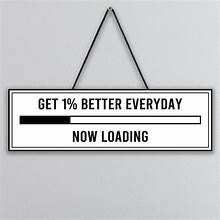
Don't assume, make hypotheses
Esseen tyyppi: / esseepistettä.
KIRJALÄHTEET
| KIRJA | KIRJAILIJA |
|---|---|
My first book to read at Proakatemia was the Lean Startup by Eric Ries. A couple of people recommend it to me, so I decided to read it. I had not read or studied anything about lean start-ups, so this book was very eye-opening. I usually don’t read any books, as they are very time consuming, and I can seldom find an interesting book. This book was interesting. At least for the most part.
Eric Ries defines a start-up as a scientific experiment, where entrepreneurs must make hypothesis, not assumptions. According to Ries, a start-up is a business that is designed to deliver something new, is it then a product or service, under extreme uncertainty. An entrepreneur on the other hand can be anything, from a mega-corporation manager, to an ordinary living being, who is trying to make a living.
Ries emphasizes many things throughout the book. In my mind, one of the most important things he discusses in the book is the process of learning. Many times, entrepreneurs, or people in general, make huge assumptions of something that they really can’t say for sure. In entrepreneurship, making assumptions on uncertainty might backfire big time, or result in nothing, not even the back firing. This is why according to Ries start-ups should always base their plans and strategy on hypothesis, because no one can really know the outcome or performance of a “new” design or service.
As I mention above, I think learning is one of the key factors in a start-up. Ries defines the process of learning as the “Build Measure Learn -feedback loop”. In many cases, an entrepreneur will start by building a product or service with the vision that he or she will then publish the product or service when it is ready. All though this might sound clever, it doesn’t go hand in hand with the principals of a lean start-up. According to Ries, a start-up should start by building a minimum viable product. A minimum viable product (MVP) is a product that is built to test the markets. It should include just enough features so that the early customers would be somewhat satisfied and able to give feedback on the product. After building the MVP and launching it to the early adopters, the entrepreneur should measure the results. In other words, was his or her hypothesis correct. Based on the feedback of the early adopters, and by making sustainable findings, the entrepreneur should use the gathered information to learn and develop the product or service. If the entrepreneur focuses on developing the product closely with its customers, the entrepreneur can also avoid a situation where he or she is building something that nobody wants. In addition, an entrepreneur must know when to pivot or persevere. In other words, should you keep doing what you are at the moment or not, and thinking whether a major change is needed to take the start-up on the right tracks again.
All in all, the book was very eye-opening and intriguing. I think our cooperative should take into consideration the tips and knowledge that Eric Ries shares in his book “The Lean Startup”.



